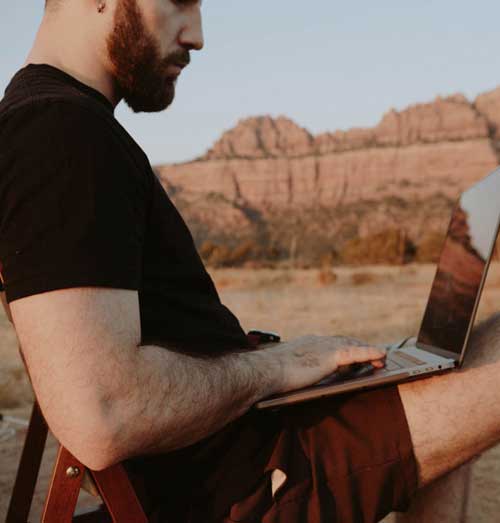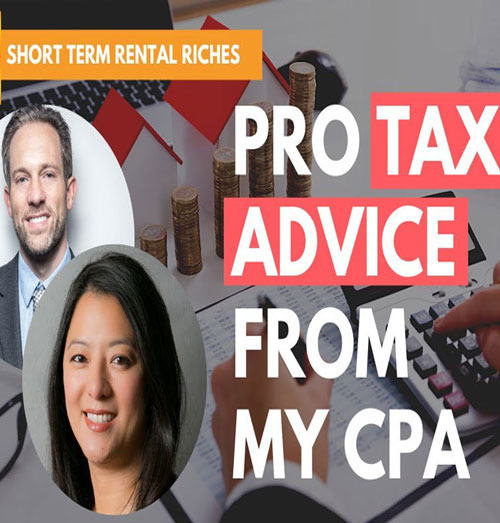Scaling Short-Term Rentals: Explore Boutique Hotel Investments, Airbnb Alternatives, & Winning Real Estate Strategies with Blake Dailey
In this episode, we dive into the world of scaling short-term rentals through boutique hotel investment with Blake Dailey, a real estate investor who’s made waves in the Airbnb and boutique hotel markets.
As Airbnb’s popularity shifts, many investors are looking for alternatives to increase profitability and provide unique guest experiences. Blake shares his strategies for finding high-potential boutique properties, implementing direct booking strategies, and maximizing revenue through added amenities and efficient operations. If you’re interested in passive income from real estate or learning how to scale from single-family Airbnb properties to larger boutique hotels, this conversation is packed with valuable insights.
Topics Covered:
-
Scaling Short-Term Rentals: Moving from Airbnb rentals to boutique hotel investment
-
Airbnb Alternatives and Market Trends: Why direct bookings and boutique hotels are rising in popularity
-
Boutique Hotel Investing Tips: Insights on finding, evaluating, and purchasing boutique hotel deals
-
Property Management Automation: Leveraging virtual reception and tech for efficient STR operations
-
Revenue Management and Value-Adding Amenities: Maximizing revenue through amenities and tailored guest experiences
Thanks for watching today’s episode on scaling short-term rentals with Blake Dailey! From real estate investing tips to the advantages of boutique hotel investments, we’ve covered a lot of ground. As Airbnb continues to evolve, many investors are finding that alternatives, like boutique hotels and direct booking platforms, can provide a profitable and unique approach to short-term rentals. Remember, successful STR management is all about creating a memorable guest experience, making smart investments, and staying efficient with automated operations.
—
Need help managing your short-term rental and you don’t want to go it alone? Shoot us a message here and we’ll see if we can help.
Are you enjoying the podcast? Please subscribe, leave a rating and a review, and share it! This helps us reach others that may find the info helpful as well.
You can find all of our links here including our website, recommended resources, upcoming live event, short-term rental playbook, Instagram, and more!
Click Here to view TranscriptWelcome to Short Term Rental Riches.
We’ll discuss investing in real estate, but with a specific focus on short term rentals.
Quick, actionable items to acquire, manage and scale your portfolio.
I’m your host, Tim Hubbard.
Well, welcome back to the Short Term Rental Riches podcast.
I’m excited for Blake Dailey today.
A fabulous interview.
I know we’re gonna dig into a lot of nuggets here.
And we’re talking about short term rentals, but on a very scaled level, right?
You’ve heard us talk about boutique properties in the past and multifamily properties in the past.
And this is exactly where Blake has been operating.
He’s acquired a lot of properties.
He’s got some really good insights.
And so I’m excited to dig into the details.
Welcome to the show, Blake.
It’s good to be here, Tim.
Thanks for having me.
Excited to dig in, talk some boutique hotels.
And yeah, let’s do it.
Yeah, me too.
It sounds like you kind of started with the smaller multifamily properties and then not just developed into what you’re doing now.
You want to catch us up to speed?
Yeah, I’ll do the quick backstory.
Is the first house I ever bought was an Airbnb property, but it was a mother-in-law suite off of a main house.
So my wife and I lived in the main house, rented out the mother-in-law suite, and we cash flowed to live there for free.
So we paid our mortgage, all of our expenses, Wi-Fi, utilities, everything, and still had money left over every month.
And we didn’t have to pay to live there because we’re getting our bills paid.
I was like, this is awesome.
So I was like, why don’t we just buy more houses like that?
My whole idea coming into real estate was to buy houses, do the long-term hold, maybe do the burn method, but it was always thinking long-term rentals.
It’s like build up passive cash flow, not thinking that Airbnb was the passive way to do it and found out it’s really not.
But anyway, I was buying these houses with guest houses or ADUs or above garage apartments, basement rentals, whatever, carriage houses, all the different ways that you can get two units for the price of one, because most real estate agents are really, really bad when you find these houses.
They’re listed as a single-family house.
And a lot of times the square footage of that guest house or of that extra unit isn’t even priced in to the purchase price.
So it really is a lot of times like getting two units for the price of one.
And the cool thing about those ones is, which I’m sure you know, is you can do like a super listing.
So you can have one unit, one listing for one unit, another listing for the other unit, and a listing for the whole place.
So you can do bigger families, bigger groups, and really optimize your revenue and your occupancy that way.
And we built up this portfolio, and as that grew, I really started to tap myself out on what I could do.
You know, like messaging guests, you know, running around cleaning supplies, doing repairs, managing contractors and cleaners and all this stuff.
All while working in a W-2 job while I was active duty in the Air Force.
I was like, there’s got to be a bigger way.
Thank you for your service, by the way.
Thank you.
I appreciate it.
Finally, finally separated earlier this year, and it feels feels good to have my first six months as a free man.
But as we were doing that, I kind of tapped out and almost like created another job for myself.
Then I’m working, you know, twice as much and we reach our financial goal of like what our financial freedom number would have been, but I still had the Air Force contract.
It’s like I’m stuck anyway, I just got to figure out how to get better and go bigger to get more scale.
And that led us into commercial real estate, where we learned how to syndicate and raise money and underwrite and find deals and structure deals and just do bigger properties and manage them as well.
And then that led into these boutique hotels, which we’ve been doing for the last couple of years.
Six of them now in California and Lake Tahoe and Panama City Beach in Florida, and now in the Smokies in Tennessee.
Yeah, that’s awesome, man.
I think for a lot of people, it is a natural progression.
As you mentioned, you have a property here, you have a property there.
It really just doesn’t make sense to hire your own team financially, because you’re not just quite at that scale yet.
And that’s one of the beautiful things behind larger properties and boutique hotels, is we can set up things a little bit better.
Can we just start off, though?
I know boutique hotels have been trending a lot just out in the media and everything.
And so, I imagine they’re getting a little harder to find.
Do you have some tips for audience just on how to find how you’re finding deals?
Yeah, I would say right now it’s probably easier to find a boutique hotel deal than like a good STR deal.
Like a good normal residential house they’re going to do Airbnb on in most markets.
It’s just priced out, like the interest rates, the competition, earnings are down.
Like the residential units, like the typical Airbnbs, I still have those.
They’re not operating as well.
Like financially, they have been strained because there’s so much more competition.
There’s regulation in these different markets.
Like I think, Tim, I want to throw this question back at you.
Of what you think Airbnb is going to look like in another five years, like the company Airbnb.
I think they’re going to lose a lot of market share because more people are going to properties like boutique hotels where they don’t have to rely on just Airbnb.
They’re using the other platforms.
They’re using direct bookings, which has grown a lot among hosts as well.
Like hosts are getting smarter.
And as a platform, they’ve never really taken care of the hosts, which is the supply that they make their fees on with the booking.
So I think Airbnb has really has really felt the pressure and Airbnb operators because they have felt the pressure because of the shifts.
Like people now want to stay in hotels more than Airbnb is like.
You never know what you’re going to get.
People are hating these cleaning fees.
Like you see one price, you know, when you’re looking and then you go to book and it’s a lot more expensive.
I think California has had laws against that now, where they have like the price transparency act, and you’re seeing that in other locations.
But just as a guest, you know, and put yourself in the guest shoes, people don’t like that crap.
And now it’s like the hotels are now more affordable for, you know, your couples or your like really small groups.
So like now it’s like Airbnb is just for, you know, five plus people and people want to stay more in hotels.
So I think what boutique hotels have done, and I’ll kind of like define what a boutique hotel is.
It’s small, independent and unique.
So small, typically like 50 units or less.
It’s an independent, I mean, it’s not under the flag of, you know, Marriott or Hilton or one of those other hotel flags, and it’s unique in its design, in its amenities, in its location, in its experience.
So it’s got its own vibe and its own appeal.
So small, independent and unique.
So what’s pushed more people there is that, you know, Airbnbs and short term rentals in general have kind of turned people off a little bit more, but the experience of what that platform has created has very much stuck around.
And you’re seeing that spread to more of the hotel space now, where, you know, you have the ease of booking, right?
You have the automated check-in.
You have the flexibility in how you can book it.
You have the amenities and the design and the style and the experience that you want to have, or like that the new traveler wants to have when they go stay somewhere, when they want to take a vacation.
But, you also get the consistency and the standards of a hotel because it’s a more professional property.
It’s ran by a business owner, not a host, as soon as a side hustle.
So, you get so many, like you really get the benefits of both.
And that’s grown so much.
And now, like in the commercial real estate space, you have a bunch of baby boomers, small business owners, a lot of them own the hotels.
So, they’re trading their properties, they’re retiring, and kids don’t want them, they’re beat up, they’re run down, whatever, they’re outdated.
And so, that provides really good buying opportunities.
And three out of my sticks have been seller financed.
So, I think it’s a great opportunity for a flood of deals and potentially really good financing, and you’re gonna have more margins.
So, I think for all those things, you’re gonna have more opportunity with buying hotels, especially over the next couple of years.
And now, where you can specifically go find them, just weave it all back to the main question here, how do you actually find Boutique Hotels, is I think the first place to start looking is just on the online listing platforms.
Like, go to CREXI, go to LoopNet.
There’s a couple small niche sites, like hotelsforsale.com, inshopper.com, and you can look up some other things around that.
But those sites, especially CREXI and LoopNet, are the first ones to get on, because that’s where commercial real estate brokers are gonna list the properties that they have for sale.
You hear all the time that LoopNet is the place that deals go to die.
I think that’s absolutely not true, because I’ve gotten really good boutique hotel deals on LoopNet.
It’s just a matter of you’re not really going there to find deals.
You’re going in there to make good deals.
Like, where can you find places to add value?
You know, you’re gonna add renovations.
Can you add units?
Can you add, you know, other income streams?
Can you cut the expenses?
Because now hotels are valued on their income.
So if you can either raise the income or lower the expenses, your NOI increases and then your value increases.
So that’s a value at play option.
So you’ve got to creatively look at the deals that you’re trying to find and not just like with the residential Airbnb, plug it into a calculator and say, all right, doesn’t cross 15% cash on cash, next deal.
Like you have so much more leverage on the boutique space, which is why I think you have more chance at getting deals.
Yeah, a lot of good stuff there, Blake.
I think what one of the good points you made is about Airbnb and market share.
And yeah, I would agree, you know, people are getting savvy, right?
Especially in the boutique hotel space, it’s always been much more a standard to have a direct booking site.
I think a lot of the older boutique properties, as you mentioned, are older and they haven’t been renovated.
And so someone that’s comparing an Airbnb versus boutique property in the past was looking at, OK, this looks like a great experience and versus the boutique that like, you know, this looks like a rundown motel room.
But that’s not the case with a lot of ones that you’ve renovated or with all the ones that you’ve renovated and a lot of other ones we’re seeing coming on the market.
I’m curious though, at like, what point do you see a boutique size property really shifting from more of an experience?
You know, the smaller the property is, I think the more kind of unique it is.
But you’ve gotten into some really big deals lately.
You know, over 100, 150 units.
At what size do you really see a little less of the experience slipping away or does the size not even match?
Really good question.
I think it’s all in like the setup of the property.
Because if you could picture like in a downtown area, wherever Dallas, and you’re just driving, you see an older motel and all it is is a parking lot and exterior corridor rooms.
And like with the lobby, just like a little L shape, there’s not much you can do there, right?
Like you’re very limited on what that property can be.
It’s always going to be like a roadside motel.
It might even be better to be switched to long term rentals if you’re in an area like that, because the other hotels with more space and more amenities and more cool features are going to be able to outcompete you.
So like for my recent property, for example, it’s 130 units on 10 acres at the gate to the Smoky Mountain National Park, which is the most visited national park in the country.
So we get a ton of travelers there.
There’s space to spread out.
And what they didn’t have before was really any gathering space or way to utilize those 10 acres.
So now we’re adding a big pool bar where we’ll do drinks out by the pool.
And for other people on the property, like Thursdays, Fridays and Saturdays when we have our busiest times, we’re adding a big covered pavilion with an outdoor kitchen, seating areas and hammocks and a big fire pit, like a wraparound fire pit that overlooks the mountains.
We’re also adding things like pickleball and putt-putt, an outdoor movie theater screen, a fitness center, a big lounge and game room.
And then we have a wedding and event venue as well.
Plus just a bunch of green space and walking paths all throughout the property.
So in that, there’s a lot of places to gather to create the memories, right?
There’s a lot of Instagrammable shots there that still make it very experience heavy.
I mean, that’s what we will use as all these amenities are completed through the construction, is to attract people in and create that experience on like what they see online.
And then on the smaller properties, like the five hotels we’ve done before this, we’re all 20 units or under, eight to 20 units.
So in that range.
And I’d say like my eight unit has very little space.
It’s like street parking.
The units themselves are really nice, but there’s not that much outdoor space.
I’d almost call like the 130 unit on 10 acres much more boutique than that unit.
So it really depends on the property and the layout.
And I think that’s one of the criteria of small, independent and unique.
Small can kind of be stretched, like where is, how big is too big, right?
Because there’s boutique hotels, a lot of sites.
Generally, I think it’s under 50 units, and I would probably stretch to call ours a boutique hotel.
It’s more of like a unique hotel and resort type thing.
But I think you’re right.
Yeah.
On smaller properties, the more you can weave in places for people to gather, think about those Instagrammable shots that really make people like, oh, I got to book that place.
It’s like the sunken-in hot tub in the deck.
It’s the fire pit with the dusk photos.
It’s the barrel sauna off of the patio.
It might be the pickleball court in the backyard.
It’s all these different features that come together to make it very experience-heavy.
And I think now we’re in a competitive landscape on sites like Airbnb and Booking, Expedia and Verbo and all these different things.
I’ve dedicated years and hundreds of thousands of dollars through trial and error to figuring out how to manage my personal portfolio remotely.
And it wasn’t always easy, and it took a long time.
But now, my amazing team can professionally manage my properties without me.
And good news, our team can also manage yours.
Let us save you the stress and headaches and some money by offering you an industry low fee.
To find out more about partnering with us, head to strriches.com, hit the property management button, answer a couple quick questions, and meet with me personally.
That’s strriches.com.
Rest easy knowing that with my team, your properties will be in excellent hands.
Yeah, that’s where the rubber really meets the road with these kind of properties.
I mean, that’s where you’re really going to make your money as an operator, is being able to cultivate this shared experience and be able to keep people happy, not have people take it over and, hey, the pickleball court’s mine now.
While I’m staying here, you can’t play on it.
And just, you got noise complaints, right?
Because people are next to each other, potentially on top of each other unit-wise.
So there’s so many different components that come into it.
But I think at the base level, right?
On these, say, call it a 20 unit or less, million dollar or less per year property, you don’t need front desk staff.
You can operate it very similar to a short term rental with your smart locks, with your PMS integrations and automated messages and all the different tech stack that you would use on short term rentals.
There’s just going to be more robustness on the back end.
I think for all those that think like going to get a 20 unit hotel is going to be the same as running your three, four or five unit STR portfolio is going to be the same.
It’s not, but those aspects are.
So like the foundation is there, but it gets more involved with how many guests you have messaging, how many calls you begin to get, because now you are a business, right?
People are going to have questions about what’s the parking situation or how do I check in, or do you guys have a military discount because now you’re a hotel.
So it’s more of a business than somebody’s house that you’re renting.
So you got to account for those things.
And I think the better you are in the boutique hotel space at building systems and putting the right people around you or building the team, both at the property, on the back end for the support staff, the better you’re going to be at running that hotel.
So foundationally, it can be very, very, very similar to your STR operations where you’re adding more robustness on the demand that your guests are giving you on the kind of issues that you’ll see with parking and noise complaints and turnovers, right?
Hopefully you have laundry on site because you’re going to end up doing a lot of laundry and your contractor fees of contracting it out to a laundry service are going to be pretty high if you don’t have it done in house.
And then thinking about like, do you still pay hourly?
Because you have all these units, so your cleaning costs are going to be crazy high.
But if you bring them cleaners in hourly, how do you keep them efficient so then they don’t also inflate your cleaning costs?
There’s so many different pieces of it.
So we could dig in on one piece or certain systems that work, but I could go in this all day.
Yeah, awesome.
Well, yeah, quick question here.
So we know that a lot of properties lend themselves well to a virtual reception type setup, right?
So we have multiple boutique properties in our portfolio now.
Two of the boutique hotels have on-site reception, two of them do not.
I’m curious, in your experience, at what point would you say you need to have the on-site reception versus just going fully virtual?
Yeah, I think it’s in like the quality of stay that you’re going to provide.
So you’re not going to have a upscale or luxury property that’s unstaffed, most likely.
So that’s going to be your mid-scale and below.
You know, kind of call it your, what, 60 percentile and below, probably, and equating it to somebody who doesn’t know the economy, mid-scale, upscale luxury kind of scale in the hotel space.
But I think the nicer that you want to be, even if you have a small 8 to 10, 12 unit property, if you’re going to try to be really upscale or actually luxury, it’s going to be the touch points of hospitality that make you luxury and upscale property.
So you need to have somebody there serving drinks or checking and welcoming people in, kind of like being a concierge for the people that are staying on site and kind of making the whole stay process very, very smooth for them if they need anything.
Now, on the other side of that, if you’re going to be in that same unit range, 8, 10, 12 listings or units, and you have the automated check-in, you’re somewhere mid-scale or below, meaning you can be nice, but you’re just not providing that extra touch, right?
You’re not really bringing the hospitality piece of really what makes it a hotel.
So that’s kind of where you’re that hybrid.
Those you can run all day.
I mean, our first five were like that with no front desk.
We’d have guest closets where they’d have a code to it so they could go get extra towels or linens or shampoos or toilet paper, whatever it is, they could go get it for them.
Now, if it was during the hours when we had our cleaners there, obviously we’d give it to them.
But if it was after hours, we’d save that labor cost of having to have somebody there all the time and just let them go get it themselves.
So it’s about setting the expectation with like the quality of the experience of the hotel that you’re trying to create.
And then you’re backing your way into the staffing that you need.
So I think in most cases, right, the starter boutique hotel that somebody gets into first, you know, maybe they found something in their market that’s whatever 20 units are under, might be 600, 800,000, a million dollars, like a very reasonable first boutique hotel to get into.
They’re probably going to come into it, add value, redesign it, you know, put the smart locks on it, make it nice, but that doesn’t need a staff member.
That can be run virtually with, you know, with VAs or you doing the guest messaging, hopefully VAs.
You guys build systems and don’t, you know, message your own guests, but it can be managed hands off, offsite, pretty passively for the most part.
It’ll probably take four to five hours a week for you to kind of, you know, do things at the property.
Or if you’re going to go nicer, right?
If you’re going to have any F&B components, if you’re going to provide a luxury product, then you’re probably going to need somebody there, at least during business hours, to just curate that whole luxury experience for the guests.
Okay.
So interesting.
So you would base it more on how luxurious it is versus, you know, what sort of class it’s at.
I guess that all comes back.
Or your size, like at 130 units, we need front desk staff because we have so many people on site at any given time.
So as you go bigger, like really, it’s like contactless or staffless hotels really only work to up to 40 or 50 units because of all the demands of guests.
You know, imagine on a Friday night, we have 130 rooms.
We might have 60, 80, 100 people coming to the front office to check in.
Gotcha, gotcha.
Okay.
Well, we know having on-site reception can be a really large expense, right?
That’s why a lot of people hire virtual assistants.
And this all comes back to, you know, boutique hotels.
These are investments.
You know, I’ve always looked at all my short term rentals as investments as well, but we know that that’s not always the case, right?
There’s a lot, there’s a big personal aspect to them, but we’re in the boutique space.
It’s an investment.
And so we got to look at the numbers.
And so I’m curious to hear some of your biggest value ads and how you might go about estimating those.
So, for example, maybe you came across a property that had 25 units.
It’s operating with a reception on-site.
And you know that based off your experience, we could operate this property, no problem with off-site or virtual reception.
How do you go about kind of running those numbers?
And what are a couple other things that you might look at that says, OK, this is a win because we know we can add value in this way?
Yeah, I think the first thing that you can look to add value with is your amenities.
So if you don’t have the pickleball court or the putt-putt or whatever those like equivalent things are, that’s really cool in your market for the experience that you’re trying to provide.
It could be fire pits.
It could be a cabana.
It could be a whole slew of things.
It could be a private chef or like yoga that you provide for your people on a couple of days a week.
Like whatever that thing is, I think those are the things that are really driving people to book.
Now, of course, you can’t go by a Motel 6 and just like add yoga or add a pickleball court and expect your rates to go up.
You’ve got to have like the design and the quality of the unit itself kind of match the amenity, right?
Because like think about an upscale luxury resort, you’re going to have a spa, some kind of like steakhouse or like really nice restaurant.
Those are upscale amenities.
Now at a holiday inn or whatever, something that’s not quite economy, kind of mid-scaler, call it mid-scale, you’re going to have like your free breakfast, your weight room and like an indoor pool and hot tub.
Oftentimes, it’s like the amenities match the quality of the property itself.
So look at your amenities.
Like are you in a national park market?
Are you in a downtown metro market?
Like what do the people traveling to that area want?
And then provide that both in your design and your amenities.
And that’s what’s going to drive one first is higher occupancy, getting more people there.
And then you can optimize for higher ADRs after that and really push your rates.
And that’s where you get the big increases in your net operating income, which are really going to drive the value.
So I like to look at it when I’m breaking down a renovation.
First of all, when I walk the property, I want to know like how the property is operating now.
Do they have the staff like you’re talking about?
And if so, are they needed based on the quality of the hotel and like the location?
What can I make this into?
And most of the times it’s going to be you can probably operate it virtually and not need staff there.
Like a true luxury product is a much more unique thing.
And you can absolutely do it, but I’m saying most cases you can probably make that 25 unit virtual, put the automatic checks in place, and then have your staff, a typical hotel is going to have front desk, general manager, cleaning staff, maintenance.
So if you can just count the front desk, but you still have the management, they can serve and kind of fill in for the guest relations.
But then on the back end, you supplement with your e-concierge, that’s what we call them in our business.
So these are our VAs that do all of our guest messaging, and our admin, our resolutions, answer the phones, all that stuff, and they escalate it if needed.
So they’re kind of fulfilling our virtual front desk staff at a third or fourth of the cost, but it’s still a really good pay rate for them over there.
And then we’ll have our one manager that does all the on-site stuff.
And then we’ll typically, for a 25 unit, would contract out maintenance, and would still probably do hourly for our housekeeping, because that allows us to, like, one, have them as employees direct their work and control the costs.
We’ll do incentive and performance bases to that housekeeping team, too, because they really are like the heart and soul of the hotel.
If you can’t turn rooms, then you can’t run your hotel.
We’ll look at what is going wrong in the current operation.
How do we need to fix those things?
What’s it going to cost in terms of cost in people?
Right, if they have a bunch of deferred maintenance and nobody on site, and we’ve got to hire somebody there and fix all the deferred maintenance, plus do our upgrades.
So we’ll look at those things.
And then I think I like to break it down to a blanket cost of doing multiple of these hotel projects now, knowing that a light renovation can be anywhere from whatever 5,000 to 10,000 per unit in repairs and furnishings.
And a medium-tier renovation, think, all right, we got to redo some plumbing, we’re going to change out the vanities, we’re going to redo some flooring, we’re going to redo all the fixtures, we might recut the parking lot.
Like that medium-tier renovation, we’re going to paint the outside, things like that.
That might be anywhere from the 10,000 to 25,000 dollars per unit, 10,000 to 20,000 maybe call it.
And if you’re going to do a full gut rehab or if you’re going to add some really big awesome amenities, that’s where you’re going to see like 20,000, 25,000 plus, maybe up to 50,000 or more depending on the size.
But I would say like 25,000 plus per unit.
And then that gives us our basis of like, all right, like you said, it’s an investment.
So if we’re going to put a million bucks into this all in with the purchase and that amount of repairs, and we expect to cash flow 200K, then we got a 20% return.
Is that what we’re looking for?
Then you got to look at your IRR, right?
Because if you’re going to hold on to it for the long term and the refinance, get the money out to go do the next deal.
So that’s typically how we do it on a broad strokes basis.
Okay.
I’m curious, guys.
We’re already kind of coming to the end here, and I’ve got quite a few other questions that I wanted to ask.
Maybe we’ll have to do a follow up on this one.
The Boutique Hotel Series with Tim and Blake.
Yeah, that’s right.
When we’re doing apartment renovations, we can really underwrite how much we need to put into apartment, for example.
There’s a lot of comps available.
But when we’re doing a boutique type property, a lot of what’s selling the property is because it’s unique, right?
Some of the things you mentioned, like, you know, it’s in front of the Smoky Mountains, and there’s not a lot of other properties around.
I’m curious how you go about actually estimating how much additional revenue you’re going to be able to drive by completing these renovations.
Are you, how are you going about finding comps and what sort of tools are you using?
So this one is such an art and a science, and I’ll be as fast as I can, because I know we’re getting towards the end, but really depends on the type of hotel.
So if you’re doing a more unique type stay, maybe it’s individual bungalows or individual cabins or unique builds or whatever it is, that is going to operate more closely to your air DNA data.
And your typical all buildings in one hotel, it’s all single kings or double queens, that’s going to operate more to your hotel data, which you’re going to get from the STR data, which coasts around.
So you can get it from like the Smith, it’s str.com, but it’s Smith travel report.
So those STR trend reports will give you the ADR, the occupancy, the REVPAR, the supply, the demand, the total revenue for like the last seven or eight years.
So those are all the metrics that you need to see how those hotel units in that market are performing and what the trends are and all that kind of stuff, or you can get the STR subscription through CoStar.
So that gives you hotel data and short term rental data.
Now, what you needed to decide when you’re analyzing a property is based on your market and the other comps available out there, and what you are going to create on that property, is it going to be more like an STR or is it going to be more like the hotels in that comp set, and then you kind of just weight more heavily that data?
And so it’s always a mix, right?
You always want to take each into account, but you weigh more heavily.
Like if you’ve got two, three bedroom units, you’re probably going to operate more like an Airbnb in that market, or like the AirDNA data, which is going to pull mostly from Airbnb.
So that’s the way I would look at it, is based on your market, based on what you want to do and how you’re going to create and like the property itself, the unit mix, you’re either going to weigh more closely to AirDNA data from STRs or hotel data.
And the art of that is like mixing and weighting the data to match what your property is going to become and how it will then sit in the comp set post renovation.
Right.
And that’s what you’re going to ramp up towards.
So the STR data from CoStar, AirDNA, if you’re looking more to compare with more of a short-term rental comp.
Okay.
Got it.
But yeah, I agree, you know, it’s a bit of a science, like, you know, our team spends a lot of time on revenue management and we know that that’s quite different for hotels than it is for short-term rentals.
Unfortunately, we don’t have enough time to jump into all that as much as I would like to.
So we talked about a lot here, you know, creating that unique experience with a boutique hotel, even if it’s large, by pulling in a lot of these amenities that you would expect in a short-term rental.
You talked about some of the value adds, some of the operations, you know, sort of the limit of where you might need to have on-site reception, the 40-50 mark, or if the property is really luxurious versus, you know, maybe just sort of mediocre, I guess.
I don’t like calling properties mediocre, but, you know, not luxurious.
You can have a great mid-scale property, right?
There’s nothing wrong with it.
It’s just, you know, you maybe even get more cash.
The cool thing with the revenue management is that you can have a great mid-scale property that performs better than luxurious properties if you really have the back end operations set up well.
Yeah, if you’re dialed in, you absolutely can because the margin on those luxury properties can be slim.
It just depends what all your expenses go into them.
So I would agree with that for sure.
Well, I’ve got one other question for you.
The name of the podcast is Short Term Rental Riches, and a lot of people associate the word rich with finances.
And we know that living a rich life doesn’t revolve just around finances.
So curious if you’ve added something in your life recently or changed something that’s enriched your life in a non-financial way.
Yeah, I changed up my sleep routine.
Because we had a baby.
So yeah, so we just added a member to the family, our first child baby boy, just literally three weeks ago today.
And it’s been super cool, super challenging at the same time.
And just thank God for my wife.
She’s an angel and way better at the parenting thing than me.
So I’m picking up some cues from her.
And yeah, I mean, that’s what it’s all about, right?
It’s like to build the business, right?
To create a business around your lifestyle, not the other way around, right?
That fuels what you want to do in life.
And that for me, it’s, you know, build something awesome and spend time with family and take them on trips and buy these cool boutique hotels and awesome places that we want to go visit.
And it’s the focus on boutique hotels so we can build the team and manage it efficiently.
So I have my time to do those other things with them.
So yeah, man, it’s been, it’s been pretty cool.
That’s awesome.
Congrats.
Congrats.
Very exciting.
Well, awesome.
Well, that was jam-packed Blake.
Where can people find you?
I know you got a YouTube channel.
What’s the easiest way to get in touch with you?
Yeah, the best way to reach out, probably just be Instagram.
You guys can shoot me a DM on there.
Blake J.
Dailey.
Typically answer all the DMs, so feel free to shoot me a message if you want, guys want to talk anything boutique hotels or have a question.
And if you guys want to learn a little bit more tangibly about the boutique hotels, I put a lot of free stuff on my YouTube.
It’s just at Blake Dailey on there.
So check that out.
And if I can be a resource, let me know.
Awesome.
Well, thanks, Blake.
Have a great one.
And until next time.
Thanks, Tim.
It was fun.
Whether you’re just getting started or you have dozens of properties, one thing remains the same.
Poor management can crush your investment returns.
Our team has learned a lot managing over 40,000 guests, and we’ve compiled our biggest takeaways into a handy guidebook to help you better manage your property.
Equipped with checklists for guest verification to pricing strategies, it breaks down our whole process from start to finish.
Best of all, it’s free for you for being one of our loyal subscribers.
You can get your copy by going to strriches.com.
That’s strriches.com, and I hope it helps you earn higher returns with less headache.















